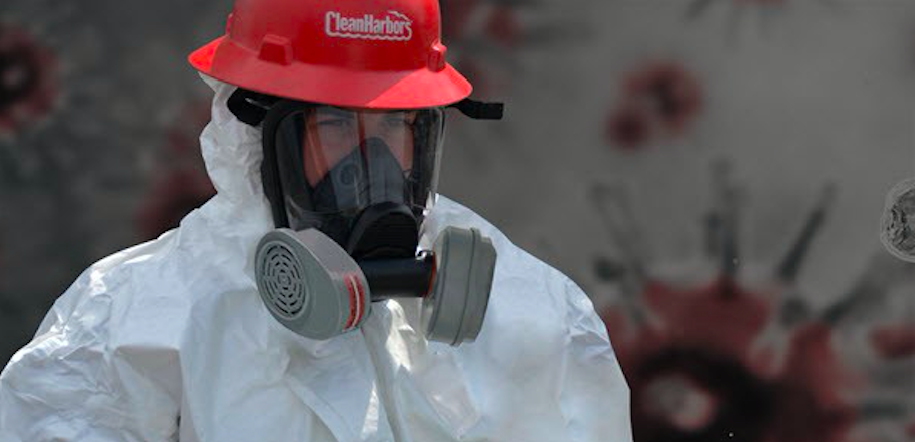The coronavirus outbreak means many corporations are having to consider risks they never would have had to think about before. Prior to the disease taking control of most business decisions, a standard janitorial service was all most businesses needed, but the spread of the highly contagious and deadly virus means that business leaders are looking for an advanced way to keep their businesses clean and safe.
The first thing businesses need to know about keeping safe during coronavirus is the difference between disinfection and decontamination. Disinfection is what is done when there is no reason to believe there has been any contamination, but still involves using the right protective equipment, proper cleaning strategies, knowing how much contact time a disinfectant needs to have with a surface, and which surfaces to pay focus on.
Decontamination is what it is needed when there is a possible, plausible, or known contaminant. Protective suits with full face respirators are required, as well as fogging, misting, and application of cleaner in the space. In these cases, the mission is destruction, as there is an assumption that the virus is present.
There are several things to consider when making a plan, says Sean Spaziani, senior vice president of Richardson-based environmental products and services company Safety-Kleen and its parent, Clean Harbors. Companies need to prepare by establishing contracts with partners, creating processes and protocols about what to do in the case of possible contamination, and to create a communication plan so that they are prepared.
Organizations also need to have a plan for business continuity, making sure they can get back to work and stay safe once things are up and running again. Finally, business leaders need to be ready to respond when there is a situation, implementing the processes that were previously developed.
Spaziani says that there are four qualifications to consider when choosing an environmental emergency responder: expertise, experience, scale, and supply chain.
Many of the largest corporations in the country are having to think about disinfection and decontamination in a way they haven’t ever before, and making sure the responder has an extensive knowledge base and much time spent in the business is essential. “Nobody has pandemic plans written into their safety management system,” Spaziani says. “There are major companies that have world-class processes for safety and sustainability saying, ‘We don’t have one for this.'” Additionally, as the virus grows and infects larger areas, scaling those services and making sure the materials can get where then need to be also becomes important.
Companies also need to be careful about which chemicals they are using to clean surfaces. The CDC’s list of cleaners and chemicals that are appropriate for COVID-19 is always changing. “Just because it says disinfectant, doesn’t mean it attacks this virus,” Spaziani says. The final step to make sure there is complete decontamination is that all waste must be incinerated.
Safety-Kleen, which was purchased by waste management company Clean Harbors in 2012, has found itself in a position to educate and consult in this time of need. The goal is to deal with trepidation in the community by making sure business leaders are prepared,” Spaziani says. “We are getting a heavy amount of fear, and our call center is inundated,” he says. “The entire environment has changed.”





